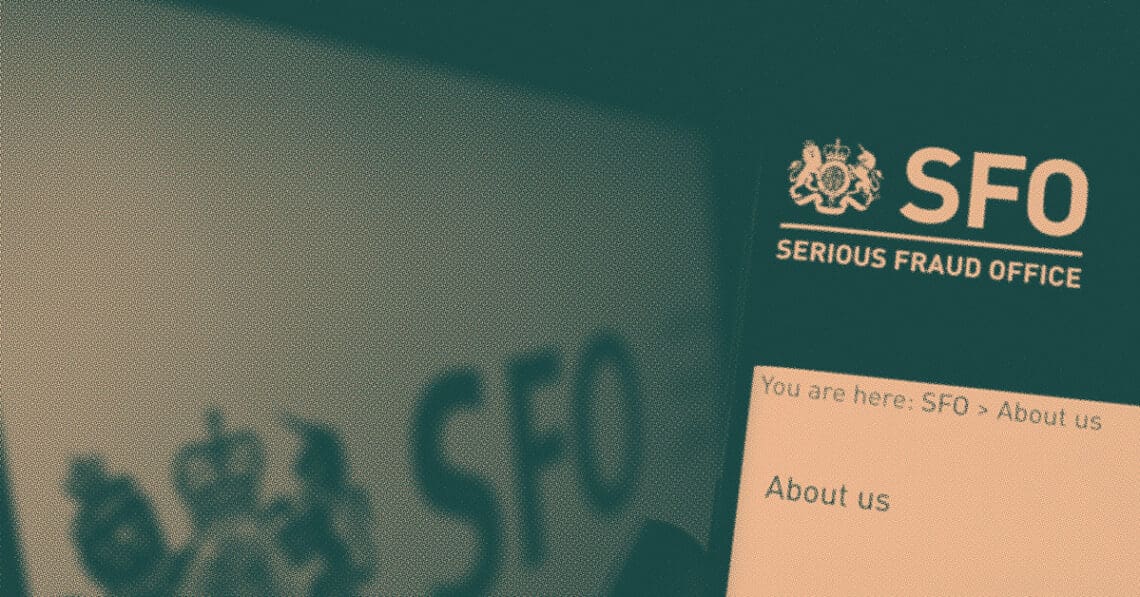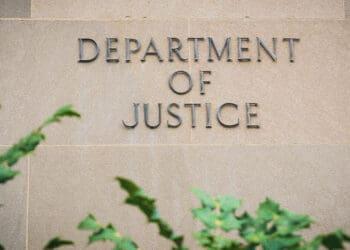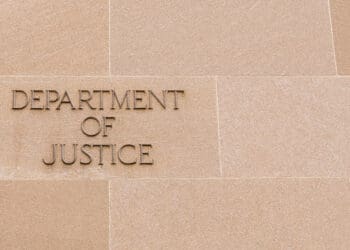The UK’s Serious Fraud Office has clarified its approach to corporate criminal offenses, establishing more concrete timelines and expectations. Jonathan Armstrong and Vivien Yanni Gan of Punter Southall examine the guidance that explicitly states organizations self-reporting promptly and cooperating fully will typically be offered deferred prosecution agreements rather than face prosecution, marking a significant development for compliance teams weighing their options when potential bribery issues arise.
On April 24, the UK’s Serious Fraud Office (SFO) published new guidance on how it intends to deal with bribery-related offenses. The new guidance, formally titled the “SFO External Guidance on Corporate Co-Operation and Enforcement in relation to Corporate Criminal Offending,” has some interesting indications of the SFO’s policy on self-reporting.
What does the new guidance say?
The new guidance seems to be aimed at giving organizations more certainty about the likely outcome if they self-report matters to the SFO. The most notable part of this guidance is the statement that “if a corporate self-reports promptly to the SFO and co-operates fully we will invite it to negotiate a DPA (deferred prosecution agreement) rather than prosecute, unless exceptional circumstances apply.”
The guidance makes clear that each case will turn on its own facts, but prompt self-reporting and cooperation will always weigh heavily in favor of a DPA over prosecution.
According to the guidance, the SFO recognizes that organizations may sometimes feel it necessary to investigate suspected offending prior to making a self-report in order to understand the nature and extent of any offending. However, there is no expectation for organizations to fully investigate the matter prior to self-reporting. In fact, in matters where there is direct evidence of corporate offending, the SFO expects the self-report to be made soon after the organization learns about it. When the position is less clear-cut, the SFO is likely to recognize the need for further investigation.
‘Genuine’ cooperation
“Genuine” cooperation is a term we’ve heard before from regulators and prosecutors, notably in connection with antitrust/competition matters and with bribery investigations. This guidance also provides more clarity on what the SFO considers genuine cooperation. This clarification will no doubt be extremely welcome as the level of cooperation is such a key factor influencing the likely outcome, and the SFO makes it clear that only “genuinely” cooperative corporates will be invited to DPA negotiations. The SFO says that cooperation means going “over and beyond what the law requires.” The guidance provides a non-exhaustive list of examples of cooperative conduct, including:
- Proactively and promptly preserving all digital and hard copy materials likely to be relevant to the SFO.
- Providing translations of relevant foreign-language documents.
- Informing the SFO of the proposed steps in any ongoing investigation with timely updates.
- Interestingly, a waiver of legal professional privilege will be considered a significant cooperative act, though valid claims of privilege will not be penalized.
The guidance also provides a short list of examples of uncooperative conduct, which includes forum shopping jurisdictions for strategic reasons and any attempts at obfuscation.
UK Corporate Crime Law Puts ‘Senior Managers’ in the Hot Seat
As Britain’s landmark economic crime law takes effect later this year, organizations face expanded liability and unclear guidance on compliance
Read moreDetailsWhat happens after a self-report?
The guidance also offers some service-level commitments from the SFO. While our experience of self-reporting to the SFO has been positive, this offers welcome certainty in terms of timescale for organizations. The guidance suggests the SFO will:
- Contact self-reporting corporates within 48 business hours of a self-report or other initial contact.
- Regularly update a self-reporting corporate throughout the process.
- Decide whether to open an investigation within six months of a self-report.
- Conclude its investigation within a reasonably swift time frame.
- Conclude DPA negotiations within six months of sending an invitation.
Whether the SFO will be able to stick to these timelines, especially in an international investigation when other law enforcement agencies are involved, remains to be seen. There are signs that the SFO has moved more quickly recently — for example, the investigation into failed law firm Axiom Ince moved from initial investigation to individuals being charged in just 15 months. But the international element in an investigation often adds complexity, especially if foreign agencies need formal cooperation requests or an attempt is made, like in cases like Rolls-Royce or Airbus, to reach the conclusion of a joint investigation in different countries at the same time.
What is the SFO’s current approach to prosecutions?
The current director of the SFO is Nick Ephgrave QPM. Unlike his predecessors Ephgrave is a former high-ranking police officer and his enforcement activity to date has featured high levels of cooperation with the police and more emphasis on dawn raids and early interviews than his predecessors. The SFO has also not been afraid to take on new cases — for example on April 17, the SFO charged UK-based insurance company United Insurance Brokers Limited with failure to prevent bribery in connection with its international reinsurance activity in Ecuador.
The SFO also has some new money. In November, the UK government announced that the SFO would receive an additional £9.3 million of funding to tackle complex fraud, bribery and corruption.
This new guidance perhaps shows an element of carrot and stick. There is no doubt that the SFO feels like a renewed organization under Ephgrave with more teeth and perhaps that, coupled with greater certainty of outcome, will lead to speedier resolutions of investigations.
What does this mean?
The guidance is helpful for organizations trying to decide what to do when an incident of bribery occurs. It is not perhaps a significant change from the approach adopted by the SFO when David Green was director but goes some way to deal with the perceived confusion at the SFO under the previous director, Lisa Osofsky.
The new guidance means that in most cases, it is important to investigate allegations quickly and efficiently. The way in which the UK deals with fraud offenses also changes in September with the introduction of a new failure to prevent fraud offense, which makes it even more important for organizations to have the right procedures in place to identify and investigate wrongdoing. Among the steps and organizations should consider are:
- Training relevant employees in spotting the signs of bribery and other wrongdoing.
- Reacting quickly and appropriately to any tip-offs or whistleblower reports. Investigations will need to be constructed to ensure that evidence is gathered in a way that will allow the SFO to act should that be necessary while also taking into account the rights of the whistleblower and the accused.
- Allocating appropriate resources to an investigation. This may include specialist external counsel, technology and translation services. Even if waiving privilege can be a factor, the SFO will take into consideration it is likely that most organizations will want to do all that they can to preserve privilege, especially if other enforcement bodies and/or litigation are in play.
- Making sure that there is top-level commitment to stamping out bad behavior. Senior management must be committed to preventing bribery by fostering a culture in which bribery is never acceptable.
- Reinforcing the need to do proper due diligence, especially when engaging agents and intermediaries in high-risk areas.




 A partner at Punther Southall Law, Jonathan Armstrong is an experienced lawyer based in London with a concentration on compliance and technology. He is also a professor at Fordham Law School teaching a new post-graduate course on international compliance. His professional practice includes advising multinational companies on risk and compliance across Europe.
A partner at Punther Southall Law, Jonathan Armstrong is an experienced lawyer based in London with a concentration on compliance and technology. He is also a professor at Fordham Law School teaching a new post-graduate course on international compliance. His professional practice includes advising multinational companies on risk and compliance across Europe. Vivien Yanni Gan
Vivien Yanni Gan

![FCPA Enforcement Is Changing; What Does It Mean for Compliance Programs? [Q&A]](https://www.corporatecomplianceinsights.com/wp-content/uploads/2025/02/doj-sign-on-building-350x250.jpg)






